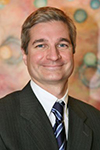
Contributions
Abstract: P748
Type: Poster
Abstract Category: Therapy - disease modifying - Treatment of progressive MS
Background: ALKS 8700 is being developed as an oral disease-modifying treatment for relapsing forms of multiple sclerosis (MS). ALKS 8700 is an aminoethyl ester of monomethyl fumarate (MMF), which is rapidly converted presystemically to MMF. MMF is the active metabolite of dimethyl fumarate (DMF), approved as an oral treatment for relapsing forms of MS. Oral DMF was approved based on compelling Phase 3 efficacy data including robust reductions in annualized relapse rates compared with placebo. However, gastrointestinal adverse events (AEs) were frequently reported and were the leading cause of study discontinuation due to AEs, negatively impacting the tolerability profile of DMF. ALKS 8700 was designed to effectively treat relapsing forms of MS in a manner similar to DMF but with improved gastrointestinal tolerability. This study evaluates the long-term safety and tolerability of ALKS 8700 in patients with relapsing-remitting MS (RRMS).
Methods: This global, prospective, interventional, open-label, Phase 3 study (EVOLVE-MS-1) assesses the long-term safety, tolerability, and treatment effect over time of ALKS 8700 (462 mg twice daily) in approximately 600 patients with RRMS (ClinicalTrials.gov: NCT02634307). Main inclusion criteria include the following: patients aged 18-65 years with confirmed diagnosis of RRMS according to the 2010 revised McDonald criteria, Expanded Disability Status Scale score ≤6.0, and no evidence of relapse within 30 days before study start. Main exclusion criteria include the following: diagnosis of primary progressive, secondary progressive, or progressive relapsing MS; pregnancy; or history of other clinically significant disease. De novo patients as well as patients continuing from other eligible ALKS 8700 clinical trials (eg, EVOLVE-MS-2) will be enrolled for up to 96 weeks of treatment with ALKS 8700. Safety will be assessed via AE reporting and standard clinical, laboratory, and imaging measures. Additional exploratory assessments for treatment effect over time will be undertaken.
Results: This study began enrollment in December 2015 and is expected to be completed by the end of 2019. A total of approximately 600 patients is planned for enrollment at sites in the United States, Eastern Europe, and Western Europe.
Conclusions: Results from this long-term study over a period of 96 weeks will provide valuable information regarding safety and tolerability of ALKS 8700 (462 mg twice daily) in patients with RRMS.
Disclosure: This study is sponsored by Alkermes, Inc, Waltham, MA, USA.
RN has consulted for Acorda, Alkermes, Bayer, Biogen, EMD Serono, Genentech, Genzyme, Mallinckrodt, Novartis, and Pfizer and was on the speaker bureau for Acorda, Biogen, and Genzyme.
AC, RP, YD, MH, and LVM are employees and stockholders in Alkermes, Inc.
JW has received compensation for serving as consultant or speaker from AbbVie, Actelion, Alkermes, EMD Serono, Forward Pharma, Genentech, Genzyme, Novartis, Roche, Sanofi, Takeda, Teva, and XenoPort and has received royalties for monoclonal antibodies out-licensed to Chemicon International via The University of Texas Health Science Center at Houston.
Abstract: P748
Type: Poster
Abstract Category: Therapy - disease modifying - Treatment of progressive MS
Background: ALKS 8700 is being developed as an oral disease-modifying treatment for relapsing forms of multiple sclerosis (MS). ALKS 8700 is an aminoethyl ester of monomethyl fumarate (MMF), which is rapidly converted presystemically to MMF. MMF is the active metabolite of dimethyl fumarate (DMF), approved as an oral treatment for relapsing forms of MS. Oral DMF was approved based on compelling Phase 3 efficacy data including robust reductions in annualized relapse rates compared with placebo. However, gastrointestinal adverse events (AEs) were frequently reported and were the leading cause of study discontinuation due to AEs, negatively impacting the tolerability profile of DMF. ALKS 8700 was designed to effectively treat relapsing forms of MS in a manner similar to DMF but with improved gastrointestinal tolerability. This study evaluates the long-term safety and tolerability of ALKS 8700 in patients with relapsing-remitting MS (RRMS).
Methods: This global, prospective, interventional, open-label, Phase 3 study (EVOLVE-MS-1) assesses the long-term safety, tolerability, and treatment effect over time of ALKS 8700 (462 mg twice daily) in approximately 600 patients with RRMS (ClinicalTrials.gov: NCT02634307). Main inclusion criteria include the following: patients aged 18-65 years with confirmed diagnosis of RRMS according to the 2010 revised McDonald criteria, Expanded Disability Status Scale score ≤6.0, and no evidence of relapse within 30 days before study start. Main exclusion criteria include the following: diagnosis of primary progressive, secondary progressive, or progressive relapsing MS; pregnancy; or history of other clinically significant disease. De novo patients as well as patients continuing from other eligible ALKS 8700 clinical trials (eg, EVOLVE-MS-2) will be enrolled for up to 96 weeks of treatment with ALKS 8700. Safety will be assessed via AE reporting and standard clinical, laboratory, and imaging measures. Additional exploratory assessments for treatment effect over time will be undertaken.
Results: This study began enrollment in December 2015 and is expected to be completed by the end of 2019. A total of approximately 600 patients is planned for enrollment at sites in the United States, Eastern Europe, and Western Europe.
Conclusions: Results from this long-term study over a period of 96 weeks will provide valuable information regarding safety and tolerability of ALKS 8700 (462 mg twice daily) in patients with RRMS.
Disclosure: This study is sponsored by Alkermes, Inc, Waltham, MA, USA.
RN has consulted for Acorda, Alkermes, Bayer, Biogen, EMD Serono, Genentech, Genzyme, Mallinckrodt, Novartis, and Pfizer and was on the speaker bureau for Acorda, Biogen, and Genzyme.
AC, RP, YD, MH, and LVM are employees and stockholders in Alkermes, Inc.
JW has received compensation for serving as consultant or speaker from AbbVie, Actelion, Alkermes, EMD Serono, Forward Pharma, Genentech, Genzyme, Novartis, Roche, Sanofi, Takeda, Teva, and XenoPort and has received royalties for monoclonal antibodies out-licensed to Chemicon International via The University of Texas Health Science Center at Houston.


